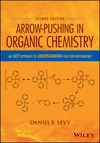From the food product side, recent news indicating that manufacturers of high fructose corn syrup are petitioning the FDA to rename the product "corn sugar" have emerged. Particularly appalling is the report that "two new commercials try to alleviate shopper confusion, showing people who say they now understand that whether it's corn sugar or cane sugar, your body can't tell the difference. Sugar is sugar." Let me make my perspective absolutely clear - THIS IS A COMPLETE DECEPTION! To back up this statement, the term "sugar" is loosely used to describe the class of organic molecules known as simple carbohydrates. More commonly, the term "sugar" relates to table sugar (sucrose, produced from sugar cane or sugar beets). Sucrose is one example from a class of molecules known as disaccharides (chemically joined combinations of two monosaccharide units). The monosaccharide (simple sugar) units making up sucrose are glucose and fructose.
High fructose corn syrup, obtained from corn starch, begins primarily as glucose. Enzymes are then added to convert the glucose into fructose. The resulting product is a mixture of two separate monosaccharides - glucose and fructose. This mixture is different from sucrose because the glucose and fructose molecules are not chemically bound to one another. It is interesting to note that fructose is not even the major sugar component isolated from corn - its presence in corn syrup is ENHANCED THROUGH ARTIFICIAL MEANS.
Reasons for wanting to include fructose in food products include cost of production and sweetness. High fructose corn syrup is cheaper to produce than sucrose due, in part, to corn subsidies. Regarding relative sweetness compared to sucrose, glucose is less sweet and fructose is almost twice as sweet.
In biology, glucose plays important roles in energy and metabolism. In fact, it is critical to the production of proteins and lipids and is a precursor to the production of vitamin C. Fructose has no such biological roles. Additionally, while fructose is introduced into our bodies through consumption of sucrose, this introduction is the result of natural sucrose metabolism. Consumption of high fructose corn syrup essentially results in flooding our bodies with a non-essential and non-nutritive sweetener. DOES THIS MAKE SENSE? DO WE REALLY WANT TO FEED THIS CONCOCTION TO OUR CHILDREN? The food, candy and soft drink industries were doing just fine before high fructose corn syrup. Certainly, we can do without it today.
Science and Ethics - CAN WE DO IT? vs SHOULD WE DO IT?
At the Boston ACS meeting, I had the pleasure of speaking with Professor Roald Hoffmann. Our conversation centered around the principle tenants of his lecture that morning entitled "Science and Ethics: A Marriage of Necessity and Choice for the Millennium." During his speech, Professor Hoffmann focused on public suspicion of science relating to ecological, environmental and ethical/moral issues. Of these three areas, I would like to focus on ethical/moral considerations.
In his lecture, Professor Hoffmann stated that "The invention or implementation of a tool without consideration of the consequences of its use is deeply incomplete. Science is not ethically neutral." He went on to say that "we must consider potential abuses of our well intended work." While both of these statements are absolutely true, scientists are also humans and subject to the same human flaws as the rest of society. This is never more apparent than when we make plans for selfish purposes or simply because there is a high likelihood that such plans can be successfully executed. From this philosophy, consider the following:
- We can plagiarize or falsify data, but we shouldn't.
- We can generate harmful chemical or biological warfare agents, but we shouldn't.
- We can withhold negative clinical data from regulatory agencies, but we shouldn't.
- We can promote pharmaceuticals for unproven off-label use, but we shouldn't.
- We can promote herbal remedies and dietary supplements for unproven health benefits, but we shouldn't.
- We can argue the equivalence between natural substances and manufactured alternatives, but we shouldn't.
- We can maintain high ethical standards in all publications, and we should.
- We can generate useful chemical and biological agents for the benefit of society, and we should.
- We can fully disclose all clinical data to regulatory agencies, and we should.
- We can promote pharmaceuticals, herbal remedies and dietary supplements for proven health benefits, and we should.
- We can anticipate the potential for abuse of pharmaceutical and biological agents, and we should.
- We can focus our efforts on commercialization of products for constructive uses and not simply because we can make money, and we should.





Regarding the high fructose corn syrup issue, a recent post on Chemistry Blog (http://www.chemistry-blog.com/2010/09/14/4615/) presented the same arguments made by HFCS manufacturers - that is, your body cannot tell the difference between sucrose and HFCS. However, a comment by "around the corner and down the hall" aptly presented biological considerations why HFCS would be more deliterious to health than sucrose.
ReplyDeleteClearly, any healthy diet can include components deemed unhealthy. The trick is moderation. However, even with moderation, the public deserves to know the truth about what they are consuming. Changing product names to improve PR does nothing to provide information allowing the general public to make their own choices.
I would have to agree with Daniel's comment above that moderation is the key. Everything that is excessive is never good, no matter what that is.
ReplyDeleteGenerally speaking, the jacketed glass reactor material may be from the sand, which may make machine sent back to the vibrating screen so as to be separated. Here: www.toption-china.com/products/glass-reactor-with-jacket-10l. In fact, the stone crushing machine is very popular in Africa, Middle East, India, South Asia, Sudan etc.
ReplyDeleteMore than 300 different organizations from at least 40 countries worldwide have used Alfa Chemistry's products and services since its inception. 1-9H-fluorene -3-methylimidazolium bromide
ReplyDelete